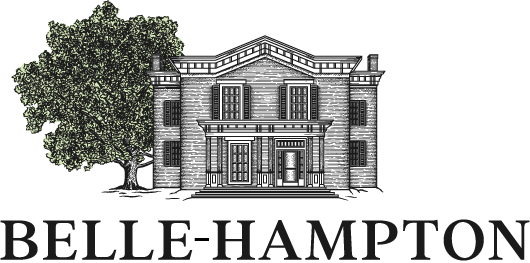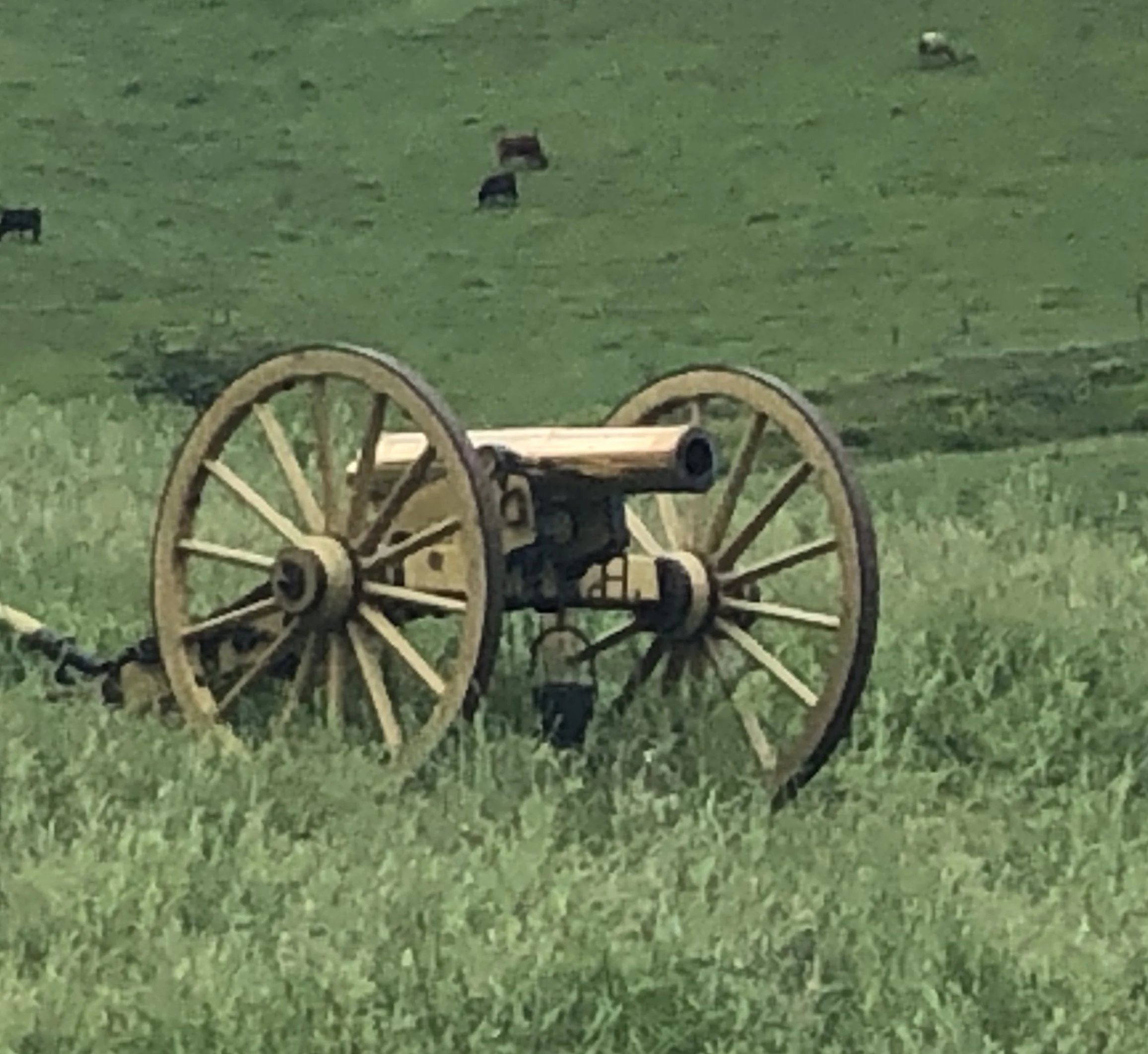The Heroic Tale of the Hoge Brothers at the Battle of Cloyd Mountain
The American Civil War, a pivotal conflict in the nation's history, witnessed countless acts of bravery, sacrifice, and tragedy. Among the numerous stories of heroism, the tale of the Hoge brothers, as recounted in the touching book My Two My Only Sons, stands out. From a collection of family letters, now 160 years old, the story of their short lives was created. This is a tribute to them on the battle’s anniversary. This blog post delves into the Hoge brothers' significant yet heartrending participation in the Battle of Cloyd Mountain, shedding light on their bravery and the ultimate sacrifice they made.
Early Life and Enlistment
The Hoge brothers, Achilles Whitlock and Moses, came from a modest plantation called “Oakley” in Halifax County, Virginia. Their father, Dr. Thomas P. Hoge, and their mother, Mary Whitlock Hoge, were of modest but comfortable means. Nurtured in the pre-war South, the boys were deeply ingrained with a profound sense of duty and honor, virtues that would come to define their brief yet impactful lives. The eruption of the Civil War ignited a fire within these young men, compelling them to pledge their allegiance to the Confederate Army. Their choice was a testament to their youthful fervor and unwavering loyalty to their state.
The youngest son of Dr. Hoge's family, Whitlock, left his studies at Hampden-Sidney College to fight. The Hoges were known for their lineage of learned and distinguished men. Whit, or Kiles as he was fondly called, had a scholastic talent and a bright future ahead of him. He aspired to become a clergyman like his cousin, Reverend Moses Dury Hoge.
He was also a fraternity brother in Phi Kapp Psi, which he was so proud of. He wore his pin on his uniform. The fraternity engages men of integrity to further develop their intellect and enhance community involvement. But Whit’s community involvement was serving in the war at a mere twenty-one years old. He was caught up in war fever at the college, but it was his need for personal independence that drove him to enlist.
Moses, the eldest son, decided to join the Confederacy when the North "invaded" Virginia. Despite having completed his education and being involved in the daily activities of his Oakley home, he had a limited social life and no plans for career growth. Like many men of that era, he saw this as the next great adventure.
He was also driven by a strong desire to safeguard his family's ancestral land. For him, it was not just a piece of property but a legacy that had been passed down through generations. He knew that he had to do whatever it took to ensure that it remained in the family's possession and protection. After all, it was his responsibility to preserve his family's heritage and protect it from any potential threat.
The Battle of Cloyd Mountain: A Fateful Day
The Battle of Cloyd Mountain, fought on May 9, 1864, in Pulaski County, Virginia, was part of Union General George Crook's raid into southwestern Virginia. It was primarily aimed at disrupting the Virginia and Tennessee Railroad, a crucial supply line for the Confederacy. The Hoge brothers, part of the Confederate forces, found themselves in the thick of this critical confrontation.
The battle was intense and bloody, characterized by close combat and strategic maneuvers through difficult terrain. Union forces, better equipped and supported by artillery, eventually overpowered the Confederate defenders. The cost was high on both sides, with significant casualties that included the brave Hoge brothers.
During the battle near Dublin Depot in Pulaski, the two Hoge brothers were bravely operating a 3,185-pound cannon as part of the Ringgold Battery. Unfortunately, they both fell in the line of duty, sacrificing their lives in service to their country.
The Last Stand and Sacrifice
According to "My Two My Only Sons," the Hoge brothers were part of a unit that was crucial in attempting to hold back the advancing Union troops. As the battle wore on, Confederate lines began to falter under the relentless Union assault. It was during these critical moments that the Hoge brothers reportedly made their last stand.
Eyewitness accounts from the book describe how Whitlock and Moses fought valiantly, standing their ground even as their comrades fell back. Their courage during these final moments was emblematic of the desperation and fierce loyalty that drove so many young men of their time. Unfortunately, this battle would be their last; both brothers were killed on that fateful day, and their lives were cut tragically short.
Impact and Memory
The death of the Hoge brothers was a profound blow to their family and community. "My Two My Only Sons" explores the deep grief that enveloped their family, a sentiment that was all too common in households across America during the Civil War. The book also reflects on the broader implications of their sacrifice, considering how individual acts of heroism contributed to the collective memory of the conflict.
In many ways, the story of the Hoge brothers is a microcosm of the Civil War itself—marked by bravery, tragedy, and the profound cost of conflict. Their legacy, preserved in family memories and historical accounts, serves as a poignant reminder of the human cost of war.
The book quotes Dr. Thomas P. Hoge, who identified the coffins he transported as "My Two, My Only Sons," which inspired the title. His daughter, the soldier’s sister, married John Matthews Hoge, a widower and brother-in-law to Reverend William Hickman who was also killed in this battle.
Reflections on Bravery and Sacrifice
The tale of the Hoge brothers at the Battle of Cloyd Mountain is more than just a narrative of military engagement; it is a story of personal bravery, familial love, and the harsh realities of war. It underscores the sacrifices made by individuals who stood up for their beliefs, regardless of the consequences.
As we look back on such stories, we are reminded of the complexity of historical memory. The bravery of the Hoge brothers, like that of countless others who fought in the Civil War, challenges us to remember the past with nuance and empathy. Their story encourages us to reflect on the values of courage and loyalty and the immense sacrifices made by those who have gone before us.
Conclusion
Though just one of many battles during the Civil War, the Battle of Cloyd Mountain holds particular significance through the personal stories of those like the Hoge brothers. "My Two My Only Sons" not only commemorates their lives but also invites us to ponder the impacts of such conflicts on families and the Pulaski County, Virginia community. As we recognize this year’s 160th anniversary of the battle, we continue to study and remember the overall impact of the Civil War. Let us not forget the stories of individuals like Whitlock and Moses Hoge, whose legacies remind us of the true costs of war and the enduring human spirit.


